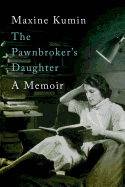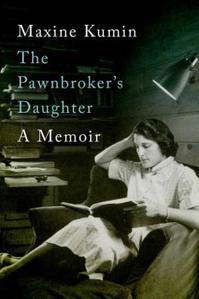

While at Radcliffe College during World War II, she met her future husband, Victor, on a blind date; a soldier/scientist, he was sent to Los Alamos to work on the top-secret development of the atomic bomb. Kumin includes snippets from several of the 575 letters the couple exchanged during this time, which are full of passionate longings and desires.
Once the war was over, the couple bought a small farm in New Hampshire, and Kumin's poetry career took off. She tells of life on the farm, raising horses and taking in stray dogs, riding horseback through the countryside, winter snows unlike any she had experienced before, and shows how these details worked their way into the many volumes that she produced.
It is through her poetry that her brilliance shines and makes this memoir so worthy. She shows how her childhood and loves influenced her, but her thoughts on being an adult who lived and worked the land and witnessed the good and evil in the world as it unfolded around her are most memorable. Often readers wonder what inspires a poet to write the way she does; readers of The Pawnbroker's Daughter will see firsthand what made Maxine Kumin tick. --Lee E. Cart, freelance writer and book reviewer
Shelf Talker: Fans of Maxine Kumin's poetry will enjoy learning about her personal life and its influence on her writing.

